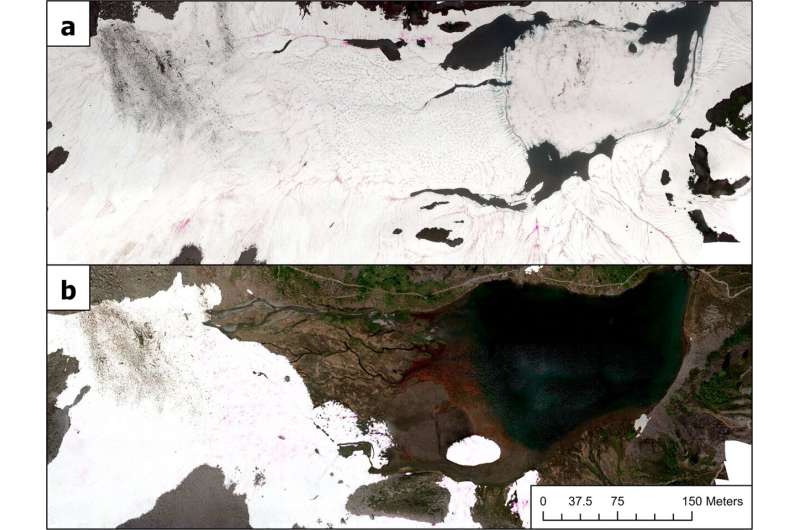
Algae blooms on snow in the Pacific Northwest have been overlooked in melt models, but new research reveals their significant impact on snowmelt. A study conducted on Mount Baker in the North Cascades, Washington, found that these algae increase snowmelt by approximately 20% compared to clean, white snow.
Leading the study is scientist Alia Khan from Western Washington University and the National Snow and Ice Data Center at the University of Colorado Boulder. The study emphasizes the importance of clean snow in reflecting solar radiation and preserving Earth’s atmosphere from warming.
During the summer months, algae in the Pacific Northwest often bloom on snow. These algae, which are usually red in color, decrease the albedo (reflectivity) of the snow by approximately 20%. The darker color of the algae causes the snow to absorb more energy rather than reflecting it back into space. The research findings were published in the journal Communications Earth & Environment.
“Snow algae are common in high alpine snowpacks, particularly in the Pacific Northwest, yet they have not been considered as drivers of snowmelt and are not included in regional watershed melt models,” said Khan. “As the region continues to warm due to climate change, we anticipate an increase in the intensity of snow algae blooms, which will likely affect the timing and magnitude of seasonal snowmelt in the North Cascades.”
The study also highlights the decline in North Cascades’ spring snowpack, which has reduced by approximately 38% between 1938 and 2016 due to rising atmospheric temperatures. Projections indicate a further decrease of 38% to 46% by 2050 compared to the average between 1970 and 1999. However, these projections have not considered the impact of snow algae, which could accelerate spring snowmelt. Additionally, the North Cascades’ glacier area has decreased by 56% over the past century, further exacerbating glacier ice melt as snow cover decreases and exposes the darker glacier ice to solar radiation for longer periods.
“These algae that grow in snow may play an important role in the melting of mountain snowpack,” said Rebecca Gast, a program director in the National Science Foundation’s Office of Polar Programs.
More information:
Shannon M. Healy et al, Albedo change from snow algae blooms can contribute substantially to snow melt in the North Cascades, USA, Communications Earth & Environment (2023). DOI: 10.1038/s43247-023-00768-8
Citation:
Algae blooms increase snowmelt in the Pacific Northwest by 20% (2023, June 15)
retrieved 15 June 2023
from https://phys.org/news/2023-06-algae-blooms-snowmelt-pacific-northwest.html
This document is subject to copyright. Apart from any fair dealing for the purpose of private study or research, no
part may be reproduced without the written permission. The content is provided for information purposes only.
Denial of responsibility! TechCodex is an automatic aggregator of the all world’s media. In each content, the hyperlink to the primary source is specified. All trademarks belong to their rightful owners, and all materials to their authors. For any complaint, please reach us at – [email protected]. We will take necessary action within 24 hours.

Jessica Irvine is a tech enthusiast specializing in gadgets. From smart home devices to cutting-edge electronics, Jessica explores the world of consumer tech, offering readers comprehensive reviews, hands-on experiences, and expert insights into the coolest and most innovative gadgets on the market.


